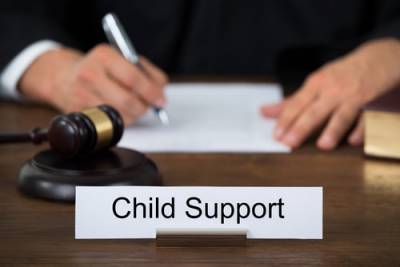Arlington Heights, IL 60005
Recent Blog Posts
What Happens If I Do Not Sign the Divorce Papers?
 Some divorces follow years of marital turmoil. The marriage is over long before the couple takes steps to officially end the marriage. However, sometimes, being served with divorce papers comes as a complete shock. In some cases, the respondent in a divorce case is not even aware that his or her spouse wants to end the marriage. He or she may still believe the marriage is salvageable or that divorce is not the right solution.
Some divorces follow years of marital turmoil. The marriage is over long before the couple takes steps to officially end the marriage. However, sometimes, being served with divorce papers comes as a complete shock. In some cases, the respondent in a divorce case is not even aware that his or her spouse wants to end the marriage. He or she may still believe the marriage is salvageable or that divorce is not the right solution.
If you were served with a divorce petition and you and not ready to end your marriage, you may wonder if you can simply refuse to respond to the divorce petition.
Failure to Respond to a Petition for Dissolution of Marriage
Illinois spouses who are served with divorce papers are also served with a summons requiring them to respond to the divorce petition. The respondent is asked to file a written appearance and response within 30 days. The appearance provides official notice to the petitioner and the court that the respondent wishes to be involved in the divorce process. Filing an appearance is the first step in participating in decisions about marital property and debt, child custody, and spousal maintenance.
Can My Ex Modify Spousal Support Payments?
 In the wake of a divorce, spousal support payments, also known as spousal maintenance or alimony, can help both spouses maintain a lifestyle that is similar to the one that they were accustomed to as a married couple. The payments are common when one spouse makes a larger income, has greater earning potential, or has more assets than the other. However, spousal support payments can last for years after the divorce, with their length depending on the length of the marriage.
In the wake of a divorce, spousal support payments, also known as spousal maintenance or alimony, can help both spouses maintain a lifestyle that is similar to the one that they were accustomed to as a married couple. The payments are common when one spouse makes a larger income, has greater earning potential, or has more assets than the other. However, spousal support payments can last for years after the divorce, with their length depending on the length of the marriage.
In the years after a divorce, circumstances can change for both spouses and the initial order may need to be revisited. There are various grounds upon which a spouse can petition the court to grant a modification. The Law Offices of Donald J. Cosley has experience representing spouses on both sides of the support issue and can make sure that you are receiving or paying your fair share after a change in the life of you or your ex-spouse.
Three Situations in Which You May Need to Get a Child Support Modification
 Raising a child is expensive. Between childcare, housing, food, extracurricular activities, and educational costs, many parents struggle to make ends meet while still providing the life their child deserves. In Illinois, children have the right to receive financial assistance from both parents even if the parents are divorced or never married. Illinois child support orders are usually based on a mathematical formula that considers both parents’ net incomes. This ensures that the child support payments are reasonably affordable while still providing the child with what he or she needs. However, sometimes circumstances change, and the child support order is no longer appropriate. In this case, a parent may want to get a child support modification.
Raising a child is expensive. Between childcare, housing, food, extracurricular activities, and educational costs, many parents struggle to make ends meet while still providing the life their child deserves. In Illinois, children have the right to receive financial assistance from both parents even if the parents are divorced or never married. Illinois child support orders are usually based on a mathematical formula that considers both parents’ net incomes. This ensures that the child support payments are reasonably affordable while still providing the child with what he or she needs. However, sometimes circumstances change, and the child support order is no longer appropriate. In this case, a parent may want to get a child support modification.
Changing a Child Support Order Due to a Change in Circumstances
When the court enters a child support order, the parents are expected to follow the order. Child support modifications are only granted in certain situations. It is also important to note that parents cannot modify child support on their own even if they agree to the change. Only the court can modify child support orders.
4 Modern Issues Co-Parents Should Discuss When Making Their Parenting Plan
 It seems like the world has changed dramatically in the last few years. In many ways it has. Parents who get divorced have an entire new set of obstacles and challenges to face as co-parents.
It seems like the world has changed dramatically in the last few years. In many ways it has. Parents who get divorced have an entire new set of obstacles and challenges to face as co-parents.
If you are getting divorced and you share children with your soon-to-be-ex, you will need to make a parenting plan that describes your parenting time schedule and the allocation of parental responsibilities. When you complete your parenting plan, make sure to consider modern issues such as:
Technology and Screen Time
Many parents worry about their children spending too much time on their cell phone, computer, or tablet. Make sure to discuss whether you and the other parent will institute rules about how and when your children use technology. Consider questions like:
- Will our children have a “screen time” limit?
What if a Self-Employed Spouse Lies About Income During Divorce?
 Divorcing spouses’ income and assets influence everything from property division to child support. Whether a divorcing couple reaches a negotiated divorce settlement or the case goes to court, the spouses can only make informed decisions if both parties disclose full, accurate financial information. Spouses may try to sway the divorce in their favor by underreporting their income, inflating expenses or debt, or lying about assets. This type of financial deception is often especially easy for self-employed spouses.
Divorcing spouses’ income and assets influence everything from property division to child support. Whether a divorcing couple reaches a negotiated divorce settlement or the case goes to court, the spouses can only make informed decisions if both parties disclose full, accurate financial information. Spouses may try to sway the divorce in their favor by underreporting their income, inflating expenses or debt, or lying about assets. This type of financial deception is often especially easy for self-employed spouses.
False income information can heavily influence the case. Lying on official court documents is also unlawful. If you are getting divorced, honest, complete financial disclosure is a must.
Determining a Spouse’s Self-Employment Income During Divorce
If your spouse is self-employed, you may worry that he or she will lie about the amount of money he or she makes. Some spouses try to lower their spousal maintenance or child support obligations by understating their income. Conversely, spouses may try to get more support than they deserve by pretending to be less financially successful than they actually are. Spouses may also underreport income to influence property division.
Can I Kick My Spouse Out of Our Shared Home During Divorce?
 Most couples that separate or divorce live in separate homes while the divorce is ongoing. However, some spouses refuse to move out—even if the marriage has become intolerable. If you are seeking a divorce and your spouse refuses to leave your home, you may wonder if you can kick your spouse out or have them evicted. In Illinois, a spouse may be able to seek exclusive possession of the marital home under certain circumstances. Read on to learn more.
Most couples that separate or divorce live in separate homes while the divorce is ongoing. However, some spouses refuse to move out—even if the marriage has become intolerable. If you are seeking a divorce and your spouse refuses to leave your home, you may wonder if you can kick your spouse out or have them evicted. In Illinois, a spouse may be able to seek exclusive possession of the marital home under certain circumstances. Read on to learn more.
Evicting a Spouse Through a Motion for Exclusive Possession of the Marital Residence
Divorce is usually a tense process, but sometimes that tension escalates to a point that is unsafe. Hostility during divorce can damage the mental wellbeing of the spouses and their children.
If living together in the same home as your soon-to-be-ex-spouse has become intolerable and he or she refuses to move out, you may be able to file a motion for exclusive possession of your home. If granted, the order will force your spouse to move out. However, Illinois courts only grant motions for exclusive possession if there is legitimate danger to either spouse or the children. Mere tension, awkwardness, or stress may not be satisfactory reasons.
Three Financial Concerns to Be Aware of in Your Illinois Divorce
 Often, the emotional and personal fallout caused by the split gets the lion’s share of attention during divorce. However, divorcing spouses must also consider the financial consequences of the split. Divorce can dramatically impact your personal finances. Furthermore, mistakes during the process can lead to avoidable financial losses and extra stress for both parties. If you are getting divorced, make sure you consider the following financial concerns.
Often, the emotional and personal fallout caused by the split gets the lion’s share of attention during divorce. However, divorcing spouses must also consider the financial consequences of the split. Divorce can dramatically impact your personal finances. Furthermore, mistakes during the process can lead to avoidable financial losses and extra stress for both parties. If you are getting divorced, make sure you consider the following financial concerns.
Marital Debt Can Haunt Spouses Long After the Split
When you get divorced, you and your spouse will need to address your shared property as well as your shared debts. Per Illinois’s equitable distribution laws, most debts accumulated by either spouse during the marriage are marital debts for which both parties are responsible. Those financial obligations do not terminate when the couple divorces. Spouses who divide joint debt between each other may still be pursued by creditors if the other spouse fails to make his or her payments on time – even after the divorce is finalized. This is why many financial experts encourage divorcing spouses to pay off debts during the divorce by selling other assets.
Do I Have to Share My Retirement Funds With My Spouse in a Divorce?
 Saving for retirement is a top concern for many working adults. Many people dream of living out their golden years enjoying hobbies and spending time with loved ones. Understandably, divorcing spouses often wonder if their divorce will threaten their retirement plans. They question whether retirement funds that they earned on their own are considered shared property for the purposes of divorce.
Saving for retirement is a top concern for many working adults. Many people dream of living out their golden years enjoying hobbies and spending time with loved ones. Understandably, divorcing spouses often wonder if their divorce will threaten their retirement plans. They question whether retirement funds that they earned on their own are considered shared property for the purposes of divorce.
Classification of Retirement Accounts in an Illinois Divorce
There are two main categories of property in an Illinois divorce case: marital property and non-marital or separate property. Almost every asset or debt that a spouse acquires during the marriage is a marital asset or debt. Property acquired through inheritance or gift are two notable exceptions. Assets and debts that a spouse had before the marriage are classified as non-marital.
Do I Qualify for Alimony in My Rolling Meadows Divorce Case?
 The financial impact of divorce can often be just as devastating as the personal impact of the split. Many divorcing individuals worry about how they will make ends meet after they are no longer marred. This is often especially true for stay-at-home parents or spouses who have been out of the workforce for a long time. If you are getting divorced, you may wonder if you can get alimony, or as it is called in Illinois, spousal maintenance. Spousal maintenance can be a valuable source of financial assistance after a divorce, however, this support is not guaranteed. Read on to learn how a divorcing spouse can pursue financial support in the form of spousal maintenance in an Illinois divorce.
The financial impact of divorce can often be just as devastating as the personal impact of the split. Many divorcing individuals worry about how they will make ends meet after they are no longer marred. This is often especially true for stay-at-home parents or spouses who have been out of the workforce for a long time. If you are getting divorced, you may wonder if you can get alimony, or as it is called in Illinois, spousal maintenance. Spousal maintenance can be a valuable source of financial assistance after a divorce, however, this support is not guaranteed. Read on to learn how a divorcing spouse can pursue financial support in the form of spousal maintenance in an Illinois divorce.
When Can a Divorcing Spouse Get Spousal Maintenance?
Alimony or spousal maintenance is not automatically granted in a divorce. There are two main ways that a spouse may receive maintenance payments: an agreement between the divorcing spouses or a court order. If you and your spouse do not already have a prenuptial agreement or other agreement entitling you to maintenance, you can petition the court for maintenance.
Three Tips for a Stay-at-Home Parent Getting Divorced in Illinois
 Stay-at-home mothers in Illinois often find themselves wondering how they could ever get a divorce when they are not working. Even in a happy marriage, the idea of not being able to leave if necessary can be suffocating. Yet homemakers in Illinois successfully pursue divorce every day, and you may be surprised to learn that there are options available to help you leave a bad situation. If you are a stay-at-home parent and considering divorce, here are three quick tips to help you move through the divorce process more easily.
Stay-at-home mothers in Illinois often find themselves wondering how they could ever get a divorce when they are not working. Even in a happy marriage, the idea of not being able to leave if necessary can be suffocating. Yet homemakers in Illinois successfully pursue divorce every day, and you may be surprised to learn that there are options available to help you leave a bad situation. If you are a stay-at-home parent and considering divorce, here are three quick tips to help you move through the divorce process more easily.
Collect As Many Important Documents As You Can
Stay-at-home parents frequently do not handle the family finances. Although you may be the one doing the grocery shopping and sticking to a strict budget, you may not have all the information you need about your family’s financial affairs. Start gathering bank statements, mortgage statements, bills, retirement account information, pay stubs, tax returns, and any other documents you can get. More information is always better, especially if you anticipate that your spouse may try to make it difficult to get access to documents.













